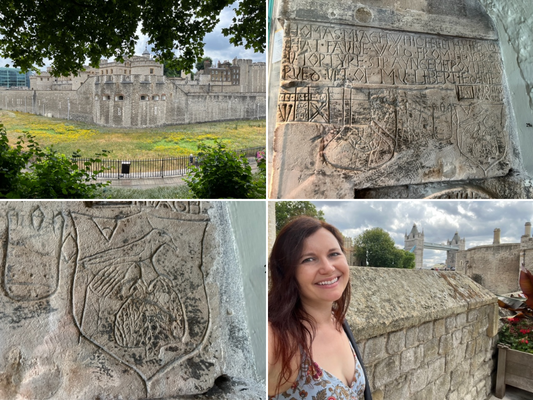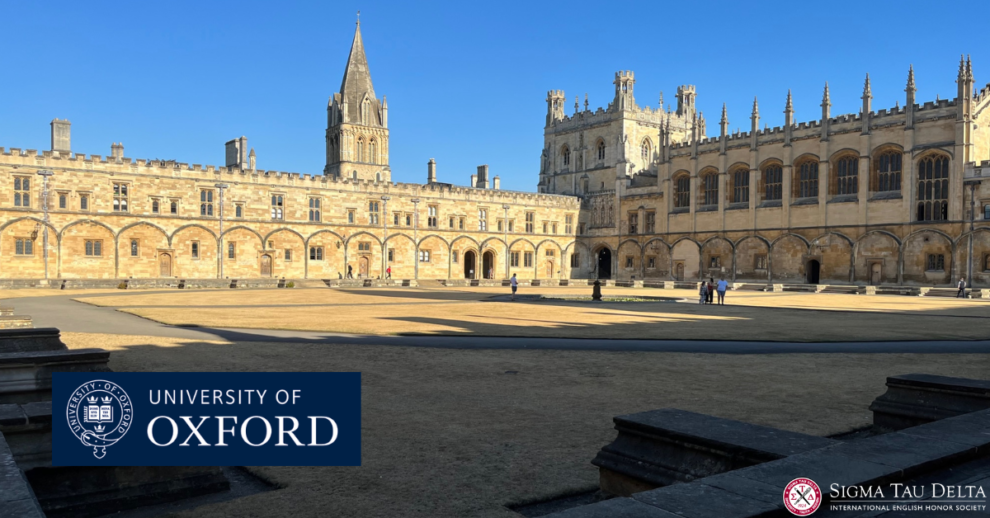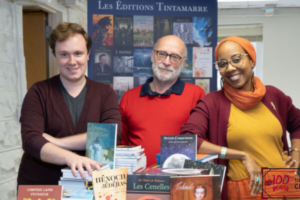The planning for the research and writing of a book always begins with an idea, an idea that seeps into your being and becomes a lens through which you view the world. While working on my MA in Literature in 2018, I knew that I wanted to write a book on Anne Boleyn. I spoke with various Tudor historians, who all told me that it had all already been written; there was nothing new to say about Anne. It wasn’t until I entered my PhD program and began to study philosophy that I realized that there was, indeed, still something to be written.

The Philosophy of Anne Boleyn began with an idea, an idea that took me to England, thanks in part to the Lambda Iota Tau (LIT) Research Grant. I used this generous grant to take a course at Oxford University with renowned Tudor historian, Janet Dickinson. This course was specifically centered around the Tudors and the literature and philosophy they would have been reading in the early-to-mid sixteenth century. Among other things, we learned about the Coverdale Bible and the influence of a widely distributed book by William Tyndale, which is said to have been a catalyst for the English Reformation. Anne kept a well-read copy of each of these texts. My book focuses on her influences and how the literature to which she was exposed informed her personal thoughts, feelings, and principles. Dickinson’s course was invaluable to my research. It also instilled a new sense of inspiration and wonder around this time period that will continue to fuel my writing of this project.

Without the honor of this grant, this Tudor course at Oxford wouldn’t have been financially feasible for me. I was in London for a conference, where I visited the Tower of London, the location of Anne’s execution on May 19, 1536. But the LIT Grant allowed me to travel west to Oxford and stay on campus there while attending this instrumental course. I gathered a lot of information that I was already looking to learn—what were the Tudors reading, what were the most influential philosophies in circulation, which books might Anne have kept and which might she have disagreed with? But I also learned where to look next, and most importantly, how to continue this research. Though I’ve grown well-informed on the texts important in the Tudor era, I must turn now to Anne’s childhood in Belgium and France. Dickinson gave me a list of sources to read that will help me to thoroughly complete The Philosophy of Anne Boleyn. I hope it will be a book that proves that it’s never all already written when we are all unique writers who begin with an idea, an idea that can soar like Anne’s falcon, with a little help.
Thank you, Sigma Tau Delta, for everything this Society is in my life, and especially for this gift that helped me to continue to write what has yet to be written.
 Sunshine Williams
Sunshine Williams
Lambda Iota Tau (LIT) Grant Recipient, 2021-2022
Alpha Psi Nu Chapter, President
The University of Texans at Dallas, Richardson, TX
Lambda Iota Tau (LIT) Research Grant
Lambda Iota Tau (LIT) Research Grants are designed to support individual members at the undergraduate or graduate level as they complete original research that furthers the goals of the Society. Grant money of up to $1,000, with up to $500 for runners-up, will support travel to and use of archives or collections important to their research. The winning applicants will demonstrate the relevance of the research to English and English-related fields and may also describe the effect on current coursework, future research, or career pursuits.
Application Deadline: April 10, 2023—All research travel and the resulting written or presented outcome must be completed before May 2024.
Past LIT Grant Recipients
Discarded Garbage: Poetic Images of Humanity
Writing On Both Sides, A Tale of Literary Obsession
What Do I Write?






Add Comment